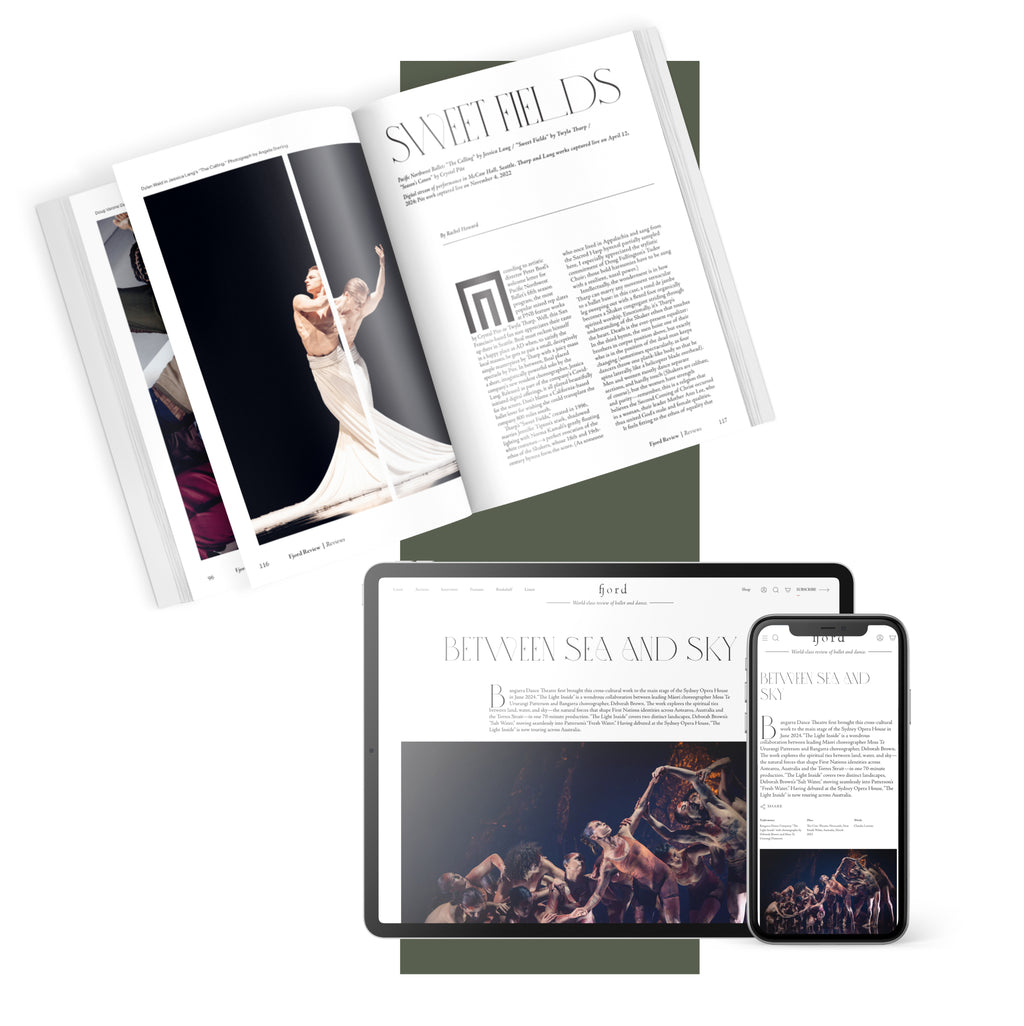This is “Neither Drums Nor Trumpets,” critically-acclaimed American choreographer Pam Tanowitz’s contribution to Dance Reflections festival by Van Cleef and Arpels, which ran in London for a month from mid-March. Created specifically for the Royal Ballet and Opera’s Paul Hamlyn Hall, which has a long, varied history as everything from a flower market to a storage space, this new work strives to create an unusual “contemporary collage” of “performing rituals and codified techniques.”
It does exactly that. Shortly after the Rambert students’ informal opening, they snap into tight triangular phalanxes, executing tendus and toe taps with military precision. Their regimentation is soon disturbed, however, by Tanowitz’s professional company, who, dressed in a mixture of vibrant patterned jumpsuits, surge through space with greater freedom and individuality than their younger counterparts. Accompanied by a score of music by Caroline Shaw as well as Beethoven's Pastoral Symphony No.6, like in the work’s opening, they pepper classical ballet steps with quirky gestures, flopping their wrists, flexing their feet, and circling their arms backward as if swimming. There are allusions to many different dance styles: folk-like skips followed by jazzy step-ball-changes and angular, Merce Cunningham-esque balances.
Extensive eclectic references in a dance work can feel disjointed or incongruous, yet in Tanowitz’s hands, they’re expertly woven together. Over the course of “Neither Drums Nor Trumpets,” certain styles become more or less prominent, as if the choreographer is experimenting with the balance of different genres. DJ-like, she dials up the percentage of one or another to find a perfect equilibrium.










comments